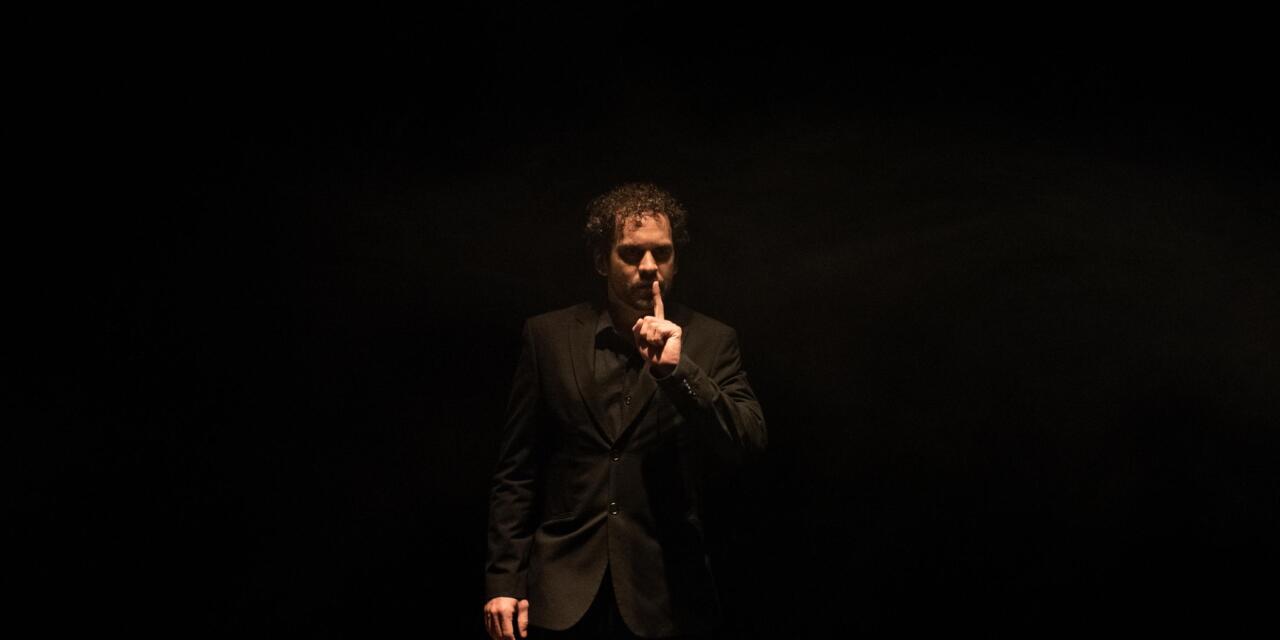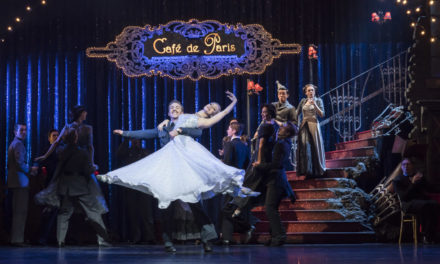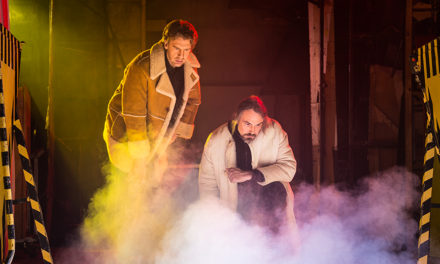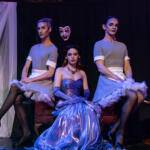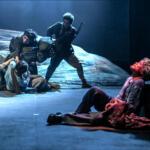The international, regional festival of contemporary theatre Desiré, which takes place in Subotica (Serbia) for the fifteenth year in a row – continues its fierce theatrical provocation and breaks stereotypes by not knowing the fourth theatre wall. Every year during November, during the time of the festival, Subotica becomes a city filled with regional acting troupes, world classics, and modern writers, huge and avant-garde theatre companies, but also theatre critics and ardent fans of the unpredictable in the theatre, which this festival really provides. Here and only here, theatre lovers have the honor and opportunity to see hidden and precious theatre gems that provoke the audience, expose taboos, and push the boundaries of endurance and the possibilities with acting and direction. This year’s edition of the festival took place under the slogan Hit Me, Baby, Final Time, and the performers with the audience, from night to night, played exciting games – before, during, and after the performances (such as coffee served by the actors of Subotica’s theatre, tickets for play are read at the entrance by the provocative, funny and frightening figures, there are the lavish pantomimes performed to silence the audience). The entire city of Subotica becomes a protected scenic area. The whole world becomes a theatre. Theatre doors opened, cults of personality become illuminated and exposed, enthralling and bloody acting, political murderous propaganda created from hypocrisy appears, the voice is given to silent art and “forbidden” technique of powerful sound. Art is a revolt against fate and in the following are the best plays from this year’s Desire and its most captivating authors.
The Poetics of Andraš Urban
Andraš Urban is a theatre director whose works are known, recognised and remembered throughout the region for their specific sincerity, combative thoughtfulness and extraordinary courage. Urban’s avant-garde world of author’s projects and direction, catharsis and parody within formal-unformal suits, banal props and shrewd comparisons and allusions never ceases to destroy all traditional forms and established concepts of theatre in the Balkans. This year, at the Desire festival, the audience had the opportunity to watch as many as three completely different and original directorials by this author, far from each other – both in terms of theme and representation. The following stage productions are The Poetics of Silence, The Toth Family and Who Plays Sonja Savić.
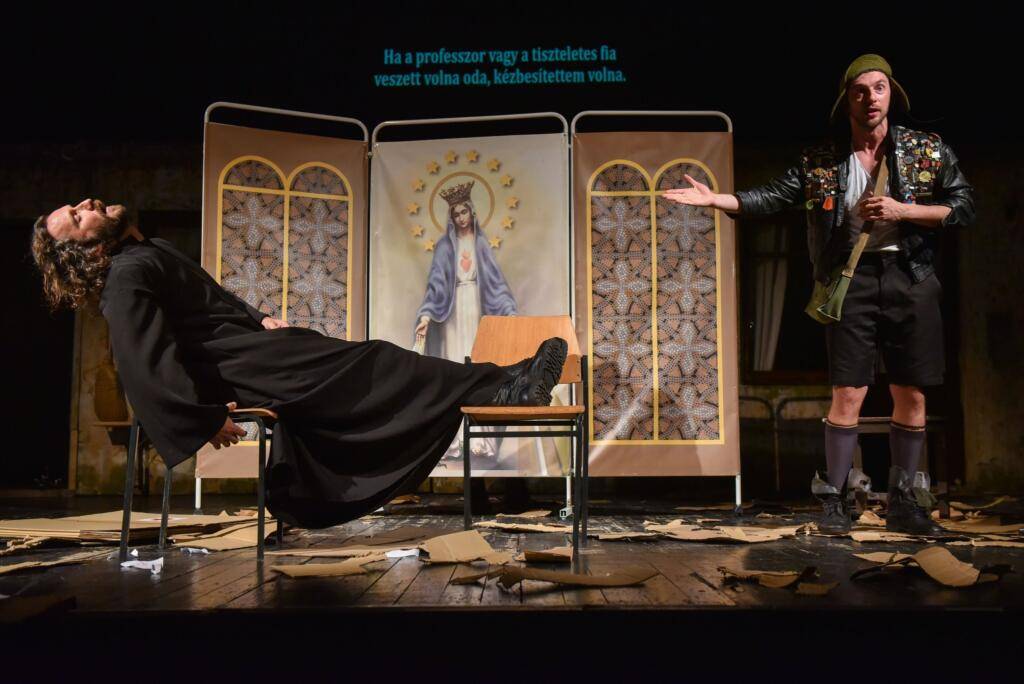
The Toth Family by Andraš Urban, photo by Molnár Edvárd
The performance The Poetics of Silence makes an allusion to Urban’s earlier project, Poetics of Observation, which was realized in 2021, as well as this one by the Subotica theatre Deže Kostolanji. In both performances, it is up to you to indulge exclusively in the sense of sight and sound. The theatre is left with no words. There are just inarticulate sounds by the actors, causing strong sonic reactions from the audience. Even this time, the director, Andraš Urban, did not disappoint and did not fail to cause complete astonishment and great surprise within the audience. The story of the beginning (genesis) and the end, light and darkness, life and death in Poetics of Observation and the continuation of the story, the centre of which is now the silenced man at the beginning and end, in light and darkness, dead or alive, gives birth to a new understanding of life and art, wakes up in person-spectator all kinds of associations and reactions. The light of the disco ball and the reflection of the mirror against the creak of the theatre boards and the shine of the buttons on the shirt, the pearls on the neck and the knife in the hand find a new beauty in the eye of the beholder. From that “In the beginning, there was a Word…” to the circumstance that only a cry and a sob remained of the Word. The Poetics of Silence or The Poetics of Listening depicts earthly torture in a world of noise and uproar. Our mouths are taped, our eyes are closed, our hands are tied, our legs unresponsive. This completely unusual performance rejects all the norms of traditional theatre. This cruel fairy tale teaches us how, day by day, to die and how to be reborn. And by no means should we forget about the aesthetics and the horrid laughter that resounds on stage and in the audience.
The play The Toth Family, based on the literature text by István Örkény from 1966, directed by Andraš Urban, represents political satire, the world’s senselessness of wars and warfare and the tragedy of specific prototypes and universal characters. The production of SARTR (Sarajevo War Theatre, Bosnia and Herzegovina) and the cast introduce us to a world of complete absurdity, where the family, as the smallest cell of society, is trapped, nailed in a cardboard box. The literary template of Örkény, writer, pharmacist, chemist, Hungarian soldier on the Eastern Front during the Second World War, prisoner of the Soviet Union, sued many times and forbidden to publish, is being staged by Urban in the Sarajevo War Theater because the Toth’s concern all people, all those affected families caught in war whirlwinds and madness. With Urban’s artistic vision, he creates a caricature and a reflection of harsh reality. Everyone was called out. Everyone is at risk. Everyone is – we are all traumatized to the point of insanity.
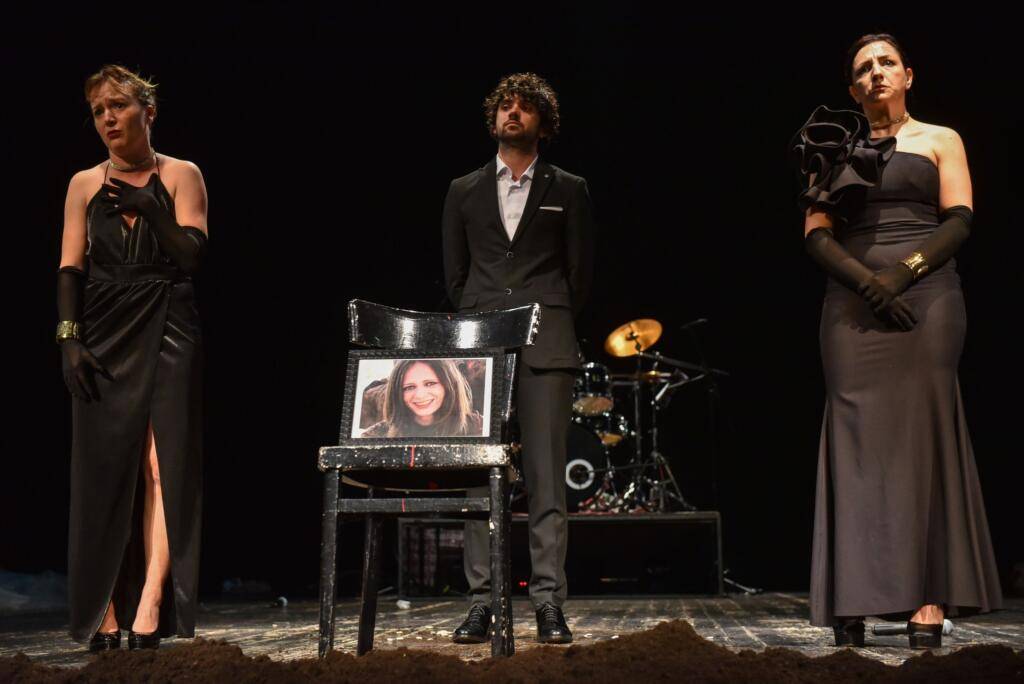
Who Plays Sonja Savić by Andraš Urban, photo by Molnár Edvárd
Who plays Sonja Savić? performed by the City Theater from Čačak in cooperation with the Bitef Theater (Belgrade), directed by Andraš Urban. Sonja Savić (1961-2008) was an urban icon – a provocative actress of the new artistic wave in the former Yugoslavia. In the eighties of the last century, she is the young hope of Belgrade theatre and Yugoslav cinema, and her profession, her art and her life in this play become torn between extremes, truth and aggression, underground and lively monologues, upbeat songs and dark dives. Who plays Sonja Savić? follows a star of movies… and stage roles… her sudden, dizzying rise in the new age and her precipitous fall on new drugs. It is a picture of a representative of the generations born in the unhappy sixties in their rebellious struggle for survival. Although it seems that the performance is primarily biographical in nature, the director Urban takes as his starting point an allegorical fairy tale, behind which is hiding the universality of a grand artist trapped in a limited space, place, city, and world. The one who plays Sonja Savić (and she is played by all the actors in the cast) represents a devastated starving artist, hungry for freedom and in the fight for an independent scene. Sonja Savić is in this play, like Sonia Marmeladova, a stumbling woman who lifts others from the bottom, an immortal heroine to whom Anraš Urban dedicates this play with the exclamation: “You spend your whole life telling people the truth, and who cares about the truth?”
The circus of Marko Mandić
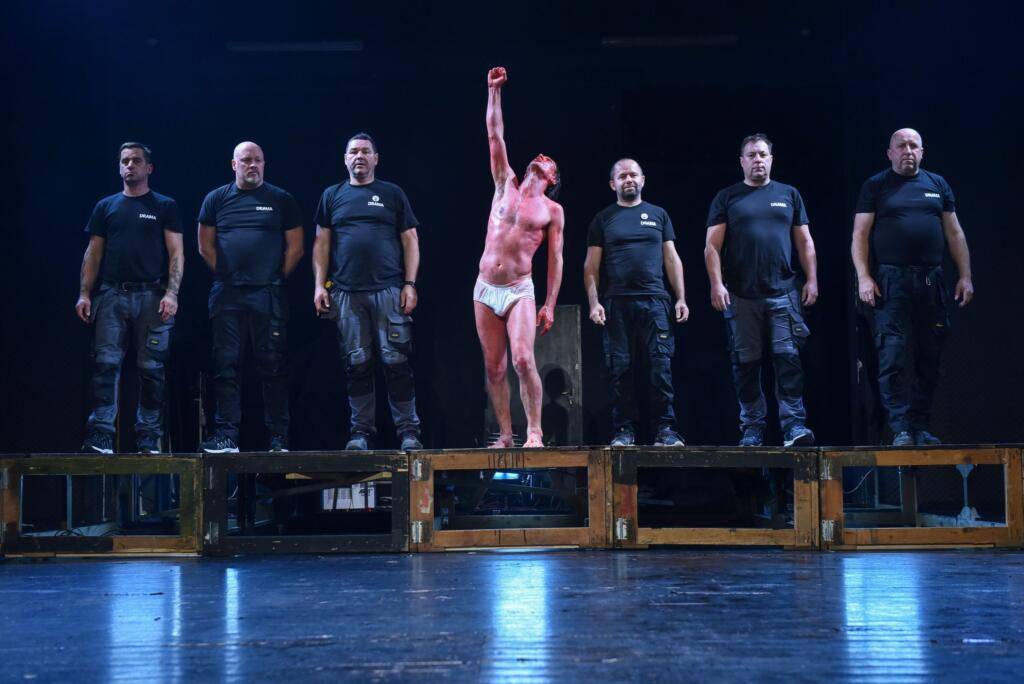
Mandićcirkus by Bojan Jablanovec and Marko Mandić, photo by Molnár Edvárd
“The theatre is my death,” says the only actor in the prominent play Mandićcircus, Marko Mandić, directed by Bojan Jablanovec, under the auspices of SNG Drama Ljubljana – Via Negativa theatre (Slovenia). In 530 BC, the Greek Thespis appeared on the stage of the Theater of Dionysus and became the first person to speak the dramatic text as a character in the play. In front of the Subotica audience of this year’s Desire festival, there was another actor by the name of Marko Madnić. This monodrama is a bloody definition of contemporary theatre, the actor’s profession and their new forms. This performance is emotional acrobatics, acting theory and cruel and sublime art that Mandić describes through his opus of ninety-one played roles. Hector from the Iliad, Tom Buchanan in The Great Gatsby, Hamlet and Macbeth, Apollo and Dionysus and many other dramatic heroes come to life again on stage in the body of the same actor. The game is stripped down, fierce and unusual, and the actor who leads it is unstoppable to the point of self-destruction.
The God of Jernej Lorenci
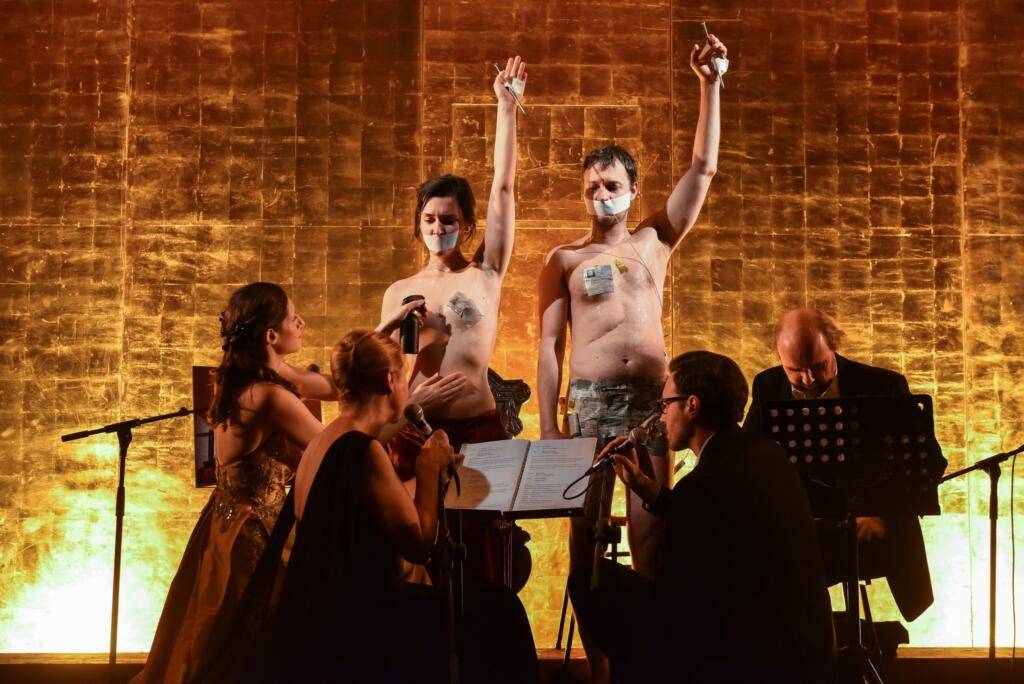
The Škofja Loka Passion directed by Jernej Lorenci, photo by Molnár Edvárd
The Škofja Loka Passion Play is a play by the Slovenian director Jernej Lorenci who – this time, brings an eschatological play, an orthodox story and a liturgical drama about art between life and death to the golden stage. The Days of Jesus in Škofja Loka is the name of the oldest Slovenian performance, the Passion Play, which is performed, in the form of a penitential passion procession. This work of 869 verses was written at the beginning of the 18th century in a monastery near the town of Škofja Loka and depicts the biblical stories of Jesus’ sufferings in a baroque manner. In front of the audience was the direction based on the oldest director’s book in the world and the contemporary play Biblia Pauperum. A chamber atmosphere with six actors on stage hidden behind music stands, Adam and Eve far from the Garden of Eden, a red theatre curtain and a golden stage light, the suffering Jesus and a crown of thorns on a bloody head become Tableaux vivantis (living pictures, theatrical mysteries without words and signs). Passion plays, moralities and miracles about heartbeats, a merciful God and a numb earth in Lorenci’s world acquire the elegance of children’s songs and artistic words, pearls and silks, as well as wings of dollar bills, death certificates that have replaced the fig leaf and paradise that looms beyond smoke machines somewhere in the distance. “Our eyes opened to us – the heavens closed us.” We are in semi-darkness and our body is convulsing. In front of us is a vivid picture of the crucifixion, the moment when a person finds himself in a constant phase of exhalation and the struggle for air begins. Actors, as apostles, tell us a story from ancient times based on the text of 13 tablets with such titles: Death, Last Supper, Bloody Road, Crown, Ecce homo, Mother of Seven Sorrows… There is theatrical providence, the beauty of direction, the cry of content with nails pierced through the palms and the triumph of love. All that in this play creates a powerful completion in the tropes of the twenty-first century.
This post was written by the author in their personal capacity.The opinions expressed in this article are the author’s own and do not reflect the view of The Theatre Times, their staff or collaborators.
This post was written by Emilija Kvočka.
The views expressed here belong to the author and do not necessarily reflect our views and opinions.

